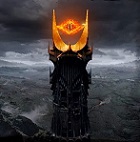Stoat
Posts: 37
Joined: 9/20/2011
From: Toronto, Canada
Status: offline

|
quote:
ORIGINAL: saintsup
quote:
ORIGINAL: Stoat
Let us say we'd like to achieve the most realistic historical simulation (as above, with reasonable abstractions such that it remains playable). I think we'd all like the game to be able to produce some range of outcomes, rather than every game producing the same outcome, because that would be pointless and no fun to play.
Some on this forum have in fact expressed this view, and moreover feel that this is in fact the current state of affairs. I do not share this view, but I am sympathetic to it, because over many AARs I think we can observe what to me personally is quite a narrow distributions of outcomes.
So this is my idea:
1) IF we can agree on what historically occurred, then we can assign this a numerical value of 0, representing no deviation from the mean historical outcome.
3) Over a sufficient number of samples, if the game is not hardwired to produce the same result every time, we will observe a distribution of outcomes.
3) Perhaps we can agree that the mean observed (played) out come should more or less equal the historical outcome (0 error or deviation).
4) ...
Very clearly expressed. One thing is bothering me though if we go into the 'simulation/modelization' path (which is different from the 'historical' or the 'fun gameplay' paths).
Why should the actual history which is just ONE sample be the mean of the model ?
I'd like to try to answer saintsup before JAMiAM, because his question really captured my interest, and because it forms an underpinning of the greater question of "what balance of play/balance of outcomes should we have".
Why to Aim for a Play Balance with a Mean Outcome Equalling the Historical Result
Premičrement, mon cher saintsup, thank you for the kind words, and moreover, thank you for understanding! Your question contains the implied criticism that the mean desired outcome need not be the historical outcome. Let us try to reframe your argument, and restate it in mathematical terms so we can solve it. We will show that we are living in a universe which is almost certainly not the product of mean outcomes, and that you are logically, if not politically, correct not to fixate on the historical outcome.
An overarching assumption: let us believe that we live in a universe where different outcomes can occur, that is, believe we live in one of an infinite number of possible universes, where at each point in Time, an infinite number of alternate universes branch out from their common root reality, increasing the number of universes in the "multiverse" (the set of all universes). Let us believe this, rather than believing in Destiny, that is, that there is only one, predetermined future, one universe, and one path of history which Time must follow. I think as gamers, it is more useful, more meaningful & more fun for us to believe in a universe of possibilities than one where things will & must always turn out the same, so let's do it! Off we go...
I) Gedankenexperiment - Framework & Assumptions:
Let us conduct a thought experiment, making useful simplifications:
I.1) the root Universe started to exist at t(0) (aka the "Big Bang)
I.2) time increments in discrete, positive integer intervals, so after t(0) comes t(1), then t(2), etc... to some time t(n).
I.3) the state of each (simple) universe can be numerically represented as an integer.
I.4) At t(0) the value of the root Universe is 0.
I.5) At each increment of time, each root universe branches into 3 child universes.
I.6) Accordingly, the number of current universes in our multiverse at time n is 3^n, so for time t = [0, 1, 2, 3] we have u = [1, 3, 9, 27] universes.
I.7) At each time increment, the 3 "child" universes, of each "parent" universe having a value of v, have respective values of v-1, v, and v+1. So, if at t(n) a certain universe has a state or value of -2, at t(n+1) it will have branched into 3 child universes with values or states of -3, -2 & -1.
I.8) Let us call positive universe states "good", and negative states "bad". So, branching from the parent with state -2 above, the child with state -1 has had a "good" outcome whereas the child with state -3 has had a "bad" outcome.
I.9) The spawning of a child universe from its parent when time increments can be thought of as a "historical event"
I.10) Inhabitants of a given reality (a path of universes traced through time) have a memory of past events and have an awareness of historical events taking place, but have no basis on which to know the true numerical value of the universe in which they live.
I.11) Inhabitants of a given reality, while aware of current or past events, have no sense of whether these events are Good or Bad in the Grand Scheme of Things, that is as they impact (the numerical value of) the state of the universe.
II) Gedankenexperiment - Analysis:
We can now visualise the expansion or explosion of the Multiverse through time. If you sum up the number of instances of each universe state at each time, you can see a depiction similar to a Pascal's Triangle. What does it show? We see the incidence of universes with average (0) outcomes decreasing as the multiverse explodes over time, from a 100% incidence at the Big Bang to a 20.99% incidence at t(5) (51/243) to a 15.16% incidence at t(10) (8953/59049). I'm a bit cross with myself that I don't have the algebra for you to tell you at what rate the incidence of an average universe is decreasing, but this incidence seems to be approaching 0 as t(n) (time) approaches infinity. But what can we know from our perspective as mere mortals, if you, Zinzup, & I, are occupying one of these universes at a certain point in time?
We can know that we are not here at t(0), the Beginning of Time, because we have some knowledge of the past history of our universe. Assuming we have knowledge of several past historical events, we also know that the value of n is not very small, that is, we are not living at a time very close to the Big Bang. And thus we know, the chance we are living in an average universe, that is, a universe with v = 0, is extremely, probably infinitessimally small. And the chance that our universe is not only average, but was created through a succession of average events (in our reality, v = 0 for each t), is even so very much infinitessimally smaller than that.
Now, what about the incidences of universes with other values, i.e. where v <> 0? If we look at our Pascal's Triangle-type view summarising the multiverse through time, we can see that the average universe (v = 0) is also the mode or modal universe (the most frequently-occurring universe). So if it is almost certain that we are not living in a universe where v = 0, it is even more certain we are not living in a universe where v = -100 or one where v = +42.
So for all practical purposes, we know that we live in an extraordinary universe. We know we live in an extraordinary reality, one that came about through a long series of astronomically unlikely events. Somehow, it's wonderful to know this, isn't it?
And we really haven't the foggiest idea whether we live in a great universe, or a terrible universe, because it's the only one we have, and we have no basis on which to compare. If however, we had to guess, what should our guess be? Well, it's clear from a quick inspection of the multiverse that we should guess that we live in a universe where v = 0, an average universe. This is the guess with the minimum average error.
Similarly, if we were looking at any past event in our history, without having any basis upon which to evaluate it, we should similarly guess that it was an average universe at that time in the past. And lastly, evaluating any interval between two points in time, we could make no better guess than that an average chain of outcomes produced the latter state from the former.
III) Gedankenexperiment - Conclusions:
Having viewed our multiverse throughout all of time, let us change our perspective and zoom in much closer. Let us zoom in an unimaginable amount, on one particular bunch of creatures, inhabiting a particular universe at a particular point in time. These creatures, curious as they are, are united in their interest in a particular series of historical events that took place over a particular time interval in the history of their reality. You will find me fanciful, but entertain the idea for just a moment that some of these creatures have actually created a game representing this series of events, so that the whole group of them, either singly or in pairs, can play the game to achieve different outcomes, or to achieve the same outcome, and to derive pleasure from doing this.
Many of these creatures are highly knowledgeable about the history of these past events, and some have even devoted much of their lives, insignificant though they may be in any Grand Sense, to its study. Yet they have not seen the Multiverse as we have, they have not conducted the thought experiment we have, and they have no basis upon which to know whether a segment of their history was fantastically improbable or turned out about average. These little creatures are quite clever - they could immediately tell you with absolute confidence, for instance, that one of their number was lucky to have rolled a 12 on 2d6 at a critical moment in the brief blip of his existence. But they simply cannot see the immense range of what could have been, or what likely should have been, for they have not seen the Multiverse as we have, and hence can have no notion of the True Values of all possibilities.
IV) Gedankenexperiment - Epilogue:
If you'll just indulge me one moment further, imagine that the game these creatures had created was the greatest game in their history. In their entire Reality from t(0) to t(n), nothing so fine had ever been done. Imagine the happiness of these little creatures at such an accomplishment! And so they played the game. And the game, quite faithfully, repeated the history of their reality each time. It repeated it so faithfully, that virtually the same thing happened every time.
The strongest and the biggest group, perhaps including the most knowledgeable, had argued for this design. Knowing very well what had happened in their universe, but knowing nothing of any others, it pleased them to tread the same path over & over. And is this not natural? Is the powerful yearning of some small creatures to run in spinning wheels any different from the celestial Movements of the Spheres, in the Grand Scheme? At any rate, after much time, and a mighty effort, and many changes, these creatures had managed to transform their game from a contest in which one side must, with any reasonable play, win virtually 100% of the time, into a new game, in which one side must, with any reasonable play, win virtually 100% of the time. Still, the astronomically small chance of the underdog was acknowledged to have become slightly less infinitesimally small, and the consensus was that balance had finally been achieved. Those who were strongest and loudest fought a tenacious, disciplined and effective rearguard action to forbid an outcome other than that which occurred. For they knew their history. They knew quite well what had occurred, at least in their universe, they did.
I should not not wish to zoom into this little drama any further. I should not care to consider what would happen if one or two weaker creatures of low standing should dare to raise their voices against the many & the strong, hoping spend their time, short though it may be, playing in a world of possibilities rather than dooming themselves to relive Destiny on endless loop until the lights go out. For there have always been, are now, and always will be, little creatures struggling over any number of things throughout the Multiverse. They're fascinating to observe but one wonders what's the point of it all after a while, wouldn't you say?
And of all the things we've considered in our little journey together, I certainly shouldn't like to imagine trying to convince such a group of creatures, so deeply ensconced in the rich traditions of their own reality and so blithely unconcerned with the other possibilities woven into the Eternal Golden Braid, that the mean outcome of their game should be anything other than what happened.
You're entirely correct of course, to suggest that what did happen almost certainly wasn't an average outcome, but we shall have to content ourselves with our own agreement on this point.
_____________________________
GGWitE = GröKAZ ("Greatest Wargame of All Time") - thx to GG, Company & Community for continuing to make it even better!
|
 Printable Version
Printable Version














 New Messages
New Messages No New Messages
No New Messages Hot Topic w/ New Messages
Hot Topic w/ New Messages Hot Topic w/o New Messages
Hot Topic w/o New Messages Locked w/ New Messages
Locked w/ New Messages Locked w/o New Messages
Locked w/o New Messages Post New Thread
Post New Thread